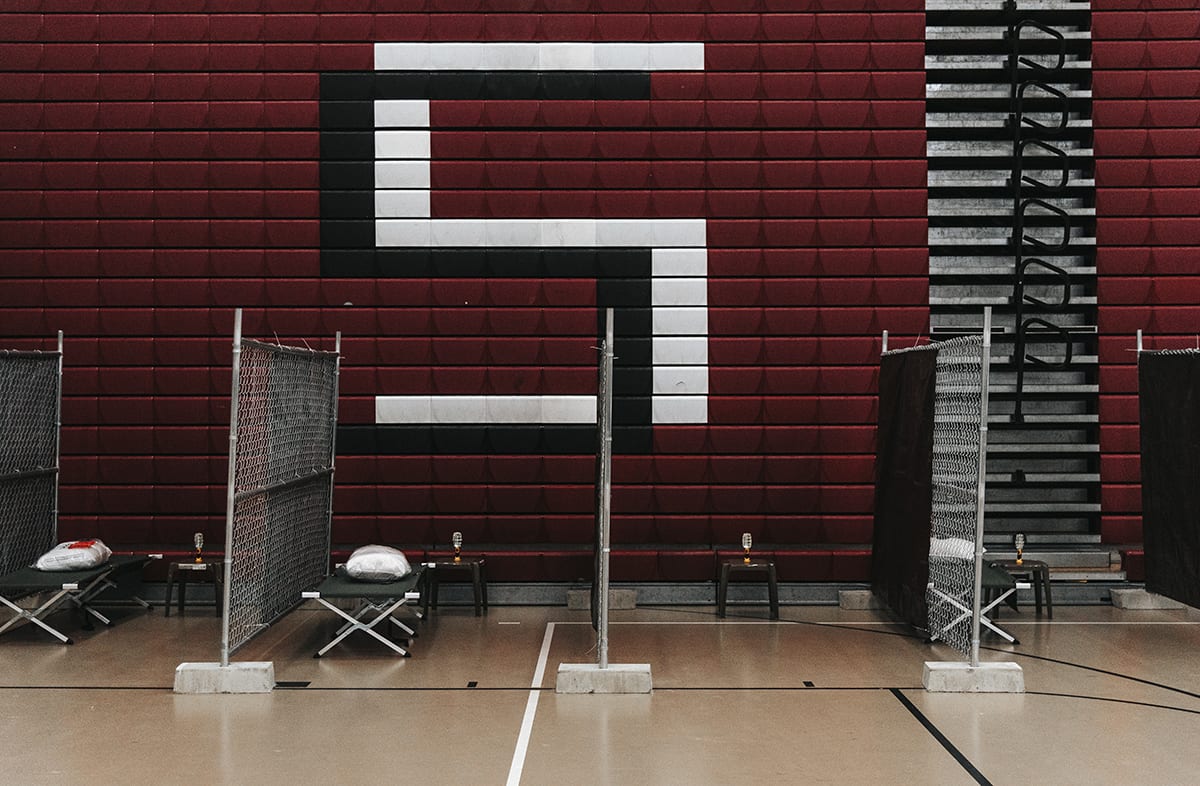SALEM — For the homeless people of Lynn, Beverly, and Salem, there has been nowhere to quarantine if they come in contact with someone with COVID-19, prompting the three cities to join together in creating a temporary shelter and “quarantine location.”
Lynn, Beverly, and Salem have partnered with the Massachusetts Emergency Management Agency (MEMA), North Shore Community Health, Lynn Community Health, the Northeast Homeland Security Regional Advisory Council (NERAC), and the homelessness organization Lifebridge to set up a temporary quarantine site for the homeless at the Salem High School field house on Willson Street in Salem.
The temporary shelter opened this week with the goal of keeping the region’s homeless safe during the coronavirus outbreak, which has infected more than 16,000 in the state as of Thursday, according to the Massachusetts Department of Public Health.
Residents served by shelters run by the Lynn Shelter Association, 100 Willow St., Lynn, Lifebridge, 56 Margin St., Salem, and Riverhouse, 56 River St., Beverly, may be sent to the shelter to protect themselves and the general public from COVID-19 infection.
“Establishing a temporary quarantine location for the most vulnerable populations has been a
shared priority of the mayors of the North Shore since the onset of the COVID-19 crisis,” said Lynn Mayor Thomas M. McGee. “Together, we will do everything we can to ensure that those who face housing insecurity, will have a dignified place to shelter, as they are affected by the spread of COVID-19.”
According to Elizabeth Gervacio, spokeswoman for Lynn Mayor Thomas McGee, the homeless shelter is a “quarantine” location, not an “isolation” location, and people sent to the field house are those who have possibly come in contact with COVID-19, not those who have tested positive. The local shelters working with the homeless will refer and transport people to the site. People who simply show up will not be admitted.
The site will only be used temporarily, and will be shut down if school reopens.
According to McGee, the existing homeless shelters in the region do not have the necessary space to quarantine people while maintaining proper “social distancing.” The Salem location has the necessary space to quarantine people, is separated from the rest of the high school, is “scalable” in case services need to expand, and is close to the North Shore Medical Center’s Salem Hospital.
“While hundreds of thousands of residents across our three communities have the ability to
shelter at home during this crisis, this smaller population of a few dozen individuals do not have
that luxury,” said Salem Mayor Kim Driscoll.
The facility will be staffed by EMTs from Cataldo Ambulance, staff from the three cities’ homeless shelters, and social work students from Salem State University. Behavioral health services will also be available on-site.
If someone at the field house becomes sick with COVID-19, they will be transported to the state’s nearest homeless “isolation facility” in Lexington, and separated from others while awaiting transportation. Whether someone gets sick or not, the field house will be sanitized and disinfected regularly by the on-site staff, not by school employees.
Mayor Mike Cahill of Beverly said the field house is necessary to help a vulnerable population that already lives in “congregate settings” like area shelters.
Local police will also be providing security at the site, according to McGee. The cost of operating the facility will be shared jointly by all three cities, then reimbursed by the Federal Emergency Management Agency (FEMA), McGee said.
David McLellan can be reached at [email protected]

